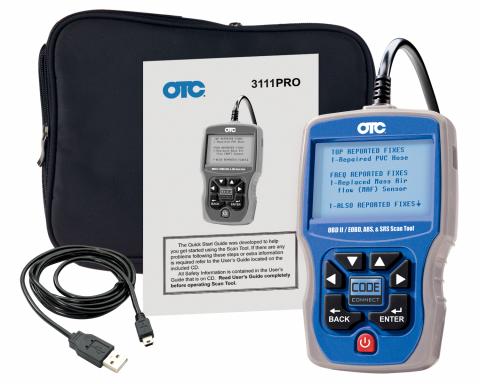Most shops have at least one full-featured high-end scan tool in house, but how much thought do you put into low-cost scan? Pocket-sized scan tools can quickly read a code, display the definition and provide live data without having to wait on the shop’s sole high-end tool.
Many times you don’t need the full blown features, and pocket scanners offer much of the same basic information. Manufacturer specific diagnostic trouble codes (DTCs), airbag and ABS codes can be read by many scanners costing under $300. Sometimes codes and live data are all the information you need to diagnose and fix the vehicle.
The high-end scan tool certainly has its place and packs plenty of power, especially if you have a need for a scope or more in-depth diagnostic sessions. It’s also necessary for reprogramming/reflashing, bi-directional capabilities and less common OBD 1 vehicle coverages, making it a requirement for every shop. But in the meantime, keep a low-cost scan tool in your toolbox to keep basic diagnostic session time and wait time to a minimum.
In your toolbox you have your own wrenches, pullers and other tools – a low-cost scan tool should be right at the top. It’ll help you get to the vehicle quickly and works on any vehicle 1996 and newer. Another benefit is that they can be found easily on most tool trucks or automotive retailers alongside the full-featured tool, so they’re easy to buy and easy to use, and can help improve productivity.
Low-cost scan is also a great entry into full diagnostics and scan tools. Once you learn the basic functions of the simpler tool you’ll show greater appreciation for the full functionality of the high-end tools.
What have you experienced in your diagnostic sessions? Does a low-cost scan tool work on most jobs, or do you find yourself needing the advanced features of a larger shop tool?





Comments